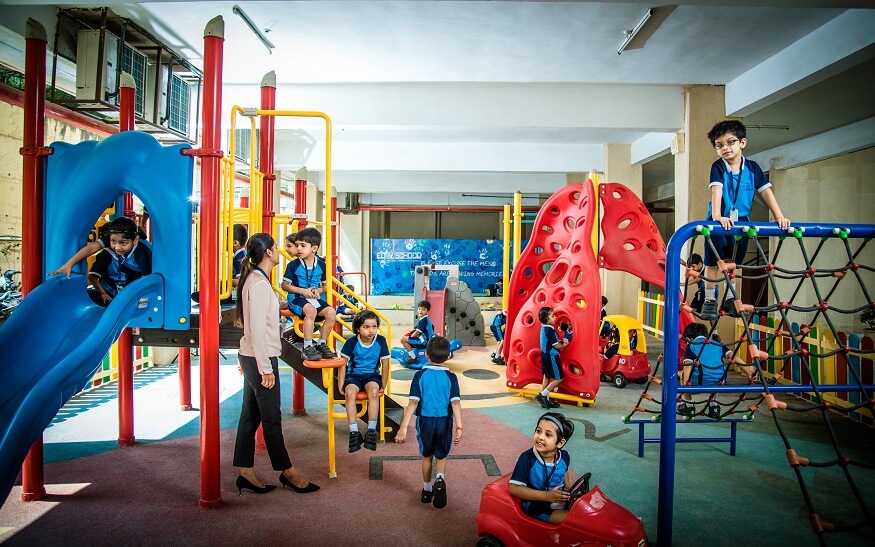The language and tone we use when speaking to our children as parents or carers has a big impact. Children’s linguistic ability, as well as their cognitive development, emotional well-being, and social skills, are shaped by adults’ deliberate and encouraging interactions with them. This blog will explore the significance of how we communicate with our kids.
Language Development
From an early age, children start to process sounds, identify patterns and begin to understand basic vocabulary, which gradually evolves into complex language structures. The number and variety of words children hear and engage with impact their linguistic development. It is through conversations that children learn new words, understand their meanings, and apply them in relevant contexts. Children who are exposed to a richer, more diverse vocabulary and complex sentences tend to have better language skills. However, those who only hear simple sentences and a limited vocabulary may not have as many opportunities to expand their language knowledge.
Emotional Development and Self-esteem
When we communicate with love, respect, and positive reinforcement, children learn to develop a positive sense of self. They feel valued and loved, which is crucial for their emotional security and self-confidence. Conversely, harsh or negative communication can instil feelings of worthlessness and self-doubt, potentially resulting in a lower self-esteem.
Social Skills and Behaviour
The way we interact with our children also teaches them about social interactions and norms. By modelling respectful, kind, and thoughtful communication, we show children how to interact with others. If we exhibit patience and active listening, children learn to do the same. Furthermore, our language can guide their behaviour. For example, instead of saying “Don’t run,” we might say “Please walk,” which provides clear, positive instructions. In this way, our language helps children understand appropriate behaviour and set boundaries.
Cognitive Development and Learning
Conversations with children are not just about giving instructions or correction; they’re valuable opportunities for learning. When we engage children in conversations about their thoughts and experiences, we stimulate their cognitive development. These conversations encourage children to think, reason, and problem solve.
Also Read: How Parent Engagement Leads to Student Success
What is the right way to talk to a child
Here are some guidelines on how to appropriately communicate with children:
Get down to their level: When speaking to a child, make sure you’re physically on their level. This can make the child feel more comfortable and less intimidated.
Listen with full attention: Children value attention. Listen actively to their stories or questions, showing them that their words matter. It will boost their confidence and improve their communication skills.
Speak clearly: Use simple and clear language. Avoid using complicated words or jargon that they may not understand.
Be patient: Children might take longer to express their thoughts and feelings. Give them the time they need without rushing them.
Validate their feelings: Children’s feelings are as real and important as those of adults. Validate their emotions by acknowledging and understanding them, rather than dismissing or minimising.
Ask open-ended questions: Rather than asking questions that can be answered with a simple “yes” or “no”, ask questions that encourage the child to express their thoughts and feelings. This can stimulate their thinking and communication skills.
Avoid negative language: Try to frame your statements positively. Instead of saying, “Don’t run,” you could say, “Please walk.” It helps in creating a positive environment and reduces negativity.
Use appropriate body language: Make sure your body language is open and friendly. Maintain good eye contact, but don’t stare as it might intimidate the child.
Encourage them: When a child has done something well, let them know. This will not only make them feel good about themselves, but it will also motivate them to continue doing well.
Be a good role model: Children learn a lot by observing. Demonstrate good manners and respectful communication to help them learn the same.
Also Read: How to Teach Children to Celebrate Failures
Impact of the way parents talk to their children
The way parents talk to their children has a profound and lasting impact on their development, well-being, and future success. Effective communication with children is essential for their emotional, cognitive, and social development. Here are some of the key ways in which the way parents talk to their children can impact them:
Language Development: Children learn language primarily through interactions with their caregivers. When parents engage in conversations, read books, and use rich and varied vocabulary with their children, it enhances their language development. On the other hand, limited or negative communication can hinder language skills.
Emotional Development: The way parents communicate can significantly affect a child’s emotional well-being. Positive and empathetic communication fosters emotional security, self-esteem, and a sense of trust in their parents. Conversely, harsh or critical communication can lead to emotional distress, anxiety, and low self-esteem.
Social Skills: Interactions with parents serve as a model for children’s social behaviour. Parents who encourage positive social interactions, active listening, and empathy in their conversations teach their children valuable social skills. Children who experience respectful communication are more likely to develop healthy relationships with peers and adults.
Problem-Solving Skills: The way parents address problems and conflicts in their conversations with children can influence the child’s problem-solving abilities. Encouraging children to discuss their feelings and think through solutions together helps them develop critical thinking and conflict resolution skills.
Academic Success: Effective communication at home can positively impact a child’s academic performance. Parents who engage in conversations, ask open-ended questions, and express interest in their child’s education can motivate and support their learning.
Behavioural Development: The tone and content of parental communication can influence a child’s behaviour. Consistent, clear, and positive communication about expectations and consequences can help shape desirable behaviours. Inconsistent or punitive communication may lead to defiance and behavioural problems.
Self-Regulation: Parental communication plays a crucial role in teaching children self-regulation skills. Parents who provide guidance and help children understand and manage their emotions contribute to the development of self-control and emotional intelligence.
Cultural and Social Identity: The way parents talk to their children about their cultural background, values, and beliefs can shape a child’s sense of identity and belonging. Encouraging open discussions about cultural heritage fosters a positive sense of self.
Communication Skills: Children learn communication skills by observing their parents. Parents who model effective communication techniques, such as active listening, respect for others’ perspectives, and assertiveness, help their children develop strong communication skills that will benefit them throughout life.
Long-Term Well-Being: The quality of parent-child communication can have a lasting impact on a child’s mental health and overall well-being. Positive, supportive, and nurturing communication contributes to a child’s resilience and ability to cope with life’s challenges.
Also Read: How does parental influence affect child development?
The way parents talk to their children is one of the most important things they can do to help their children thrive. EuroSchool encourages usage of positive language, speaking in a warm and supportive tone, and responding to behaviour in a patient and understanding way and also aligning with parents on parents helping their children to develop into happy, healthy, and well-adjusted adults.










